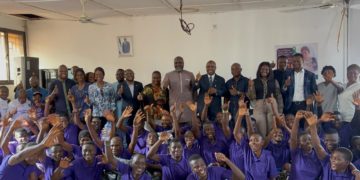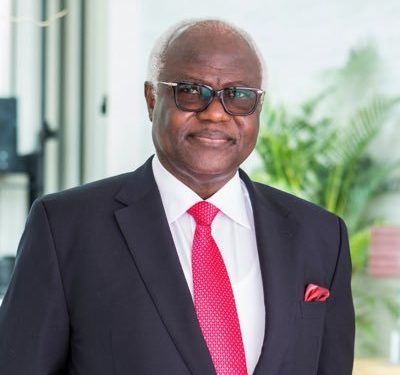By Kemo Cham
There is confusion over the status of Sierra Leone’s former leader Ernest Bai Koroma, following his appearance before police investigators over last month’s alleged failed coup attempt.
While his office said he isn’t under house arrest, as was speculated on social media since his first questioning on Friday at the headquarters of the Criminal Investigation Department, the government spokesman and Information Minister Cherno Bah has said the contrary.
“After the second day of questioning by the Sierra Leone Police, former President of Sierra Leone Ernest Bai Koroma has been granted bail on self recognizance and with the condition that he stays in the confines of his property at Goderich with restricted number of visiting guests…,” Bah wrote on X, formerly known as Twitter.
He added that the former president couldn’t be allowed to step out of his house without the “expressed permission” of the Inspector General of Police, noting that those terms would apply until his return to the police to continue the questioning on Monday.
Koroma was extended an invitation by the police who said they needed him to assist in the investigation, according to a statement from the Information Ministry, with officials explaining that the former president became an interest in the probe because many of the people either arrested or killed were his former associates or bodyguards.
The attack on November 26 began with shooting at the Wilberforce Military Barracks, where the assailants reportedly laid hands on unspecified quantity of weapons, and then engaged state security forces in several other strategic institutions across the capital city, resulting in scores of fatalities.
“Multiple of his security officials took part, some had fatal injuries, some have been arrested and questioned. So clearly, that’s why he is being invited for questioning,” Information Minister Bah told ManoReporters, adding: “Once he has answered the questions and he has clarified, the former president would be a free man.”
Responding to a request for clarification over his restricted status, the Minister said that house arrest was a legal definition that’s not covered in the specific laws of Sierra Leone, noting that what’s noteworthy are the conditionalities attached to his bail.
“There are restrictions that have been imposed, that are very clear. Those restrictions are taking into considerations the stature of the individual.
“He cannot leave his compound just as he wills. He will have to ask the IGP. He has a restricted number of guests who comes into his house and who are allowed to leave. And apart from that, he cannot just leave his house. That’s the restriction. That’s what the laws of Sierra Leone allows us to do,” Bah added.

Concerns around Koroma’s status arouse after sudden presence of heavy security at his residence following his first appearance at the CID headquarters.
In a statement following his interrogation on Saturday, the office of the former President denied that he was being held under house arrest.
His lead attorney, Joseph Fitzgerald Kamara, was quoted in the statement saying that “security beef up around his residence and the extra caution on traffic into his home are a state security determination” for his safety.
But Mr Bah said the increase in security at Koroma’s residence was in fact based on his own request.
“Yesterday he was allowed to go home because the investigation was only preliminary. And he went home and he asked for additional security, which we provided. So today we have said he was granted bail and that he is under restrictions,” he said in the telephone interview.
Bah stressed that Koroma was granted a special respect and honor by letting him go, albeit under “very specific” terms.
“The reason why we are very careful, he is a former president, he is a statesman. We tend to treat him with dignity and respect and that’s what the state is doing here,” he said.
JFK, who is a former Justice Minister in the Koroma administration, didn’t respond to a request for comment on the statement of the Minister.
The invitation of Koroma by the police has heightened tension sparked by the November 26 attack, which has led to the arrest of over 50 people.
Several other people declared wanted by the government in connection to the incident remain at large. One of them, a former deputy minister in the Koroma administration, Ibrahim Wanshingai Mansaray, has in a video circulating on social media this weekend rejected the allegation against him.
Mansaray is among over 20 people on a “Wanted List” published by the police shortly after the attack.






















